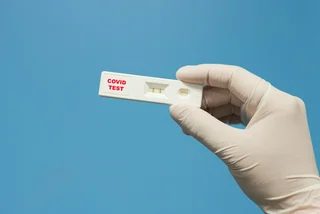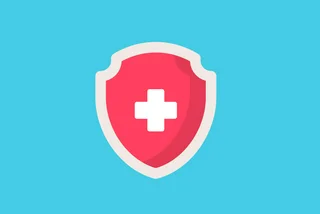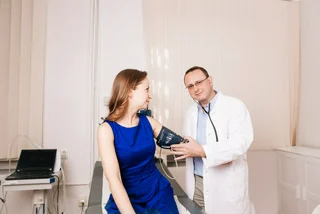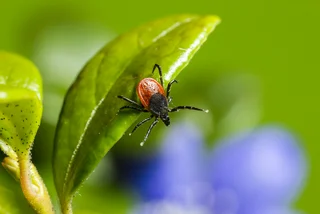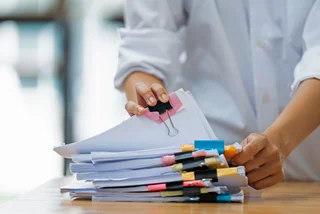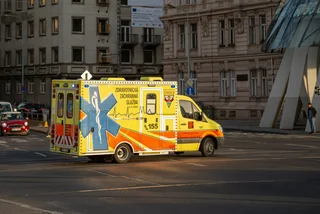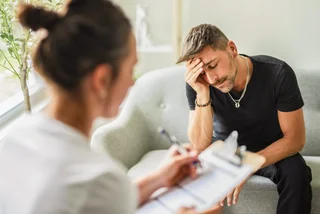Because the coronavirus can show as a multitude of symptoms or none at all, the uncertainty it presents can feel like yet another symptom.
We spoke with the doctors at Canadian Medical who provided us with anwsers to a coronavirus FAQ meant to help clear up any linger doubts or uncertainy you may have about determining whether or not you're sick and when to get tested.
Coronavirus questions and answers
What is coronavirus exactly?
Severe Acute Respiratory Syndrome Coronavirus-2 (SARS-CoV-2) is the correct designation for the new strain of coronavirus identified in 2019. It causes the disease COVID-19. In animals, coronaviruses cause a broad range of diseases, often mutate (change) and can then infect other animal species, including humans. The name of this family of viruses is derived from their appearance – in a flat projection, they resemble a crown.
What are the most common symptoms?
The main symptoms of the disease include high temperature, a dry cough, loss of smell/taste, and fatigue.
I have a sore throat, rhinitis, a slightly elevated temperature around 37˚C, and faintness. Should I get tested or wait a few days and see if the symptoms subside?
If you have these symptoms, consult with your general practitioner – by telephone or e-mail if you have been in contact with a person who is positive for COVID-19. If the COVID-19 positive person you came into contact with had his or her mouth and nose covered with a proper face mask -- not an improvised one -- at all times (except for contact of less than 15 minutes or at a distance of more than 1.5 meters) and you do not have symptoms, you will not have to go into quarantine.
Monitor your health condition for ten days following your encounter with the COVID-19 positive person and, if symptoms persist for more than three days, contact your general practitioner by telephone. They will determine demonstrable positivity and if it is necessary to get tested.
If you have not come into contact with a COVID-19 positive person and you do not have another serious chronic illness, stay home. If the symptoms do not abate within three days, contact a physician.
What should I do if I recently met someone who was COVID-19 positive or share a household with someone who's COVID positive, or have symptoms of a respiratory illness (cough, rhinitis, high temperature)?
Stay home. Contact your general practitioner or a public health office. The collection of a sample will be performed within 1-5 days following contact with the sick person. Because it usually takes several days for the disease to appear, it is necessary to comply with all measures in order to limit the transmission of the disease to other persons in your vicinity. You can spread the infection even if you feel healthy.
The result of the test will be communicated to you by telephone or SMS message either by the laboratory or by the public health office. If the test result is positive, you will subsequently be contacted by an employee of the public health office.
What should I do if I recently met with someone who is COVID-19 positive or share a household with such a person in the same household, or have symptoms of a respiratory illness (cough, rhinitis, high temperature) and have tested positive?
You have COVID-19. Stay at home and avoid contact with people so that you do not spread the illness. Wait until you are contacted by telephone by an employee of the public health office, who will carry out an epidemiological investigation with you, or provide the information (questions about your contacts, etc.) online on the website of the public health office. You will then be informed of the next step to be taken.
People with whom you have been in close contact in recent days and who the epidemiologist considers to be at risk should also be contacted by an employee of the public health office and they will also be require testing. You should remain in isolation for a period determined by your general practitioner or by the public health office. Isolation is terminated if you no longer have any symptoms of the disease.
The minimum period of isolation is ten days from the date of collection of a positive sample. It is not necessary to take another sample after you have recovered.
What should I do if I recently met with someone who is COVID-19 positive or share a household with such a person, or have symptoms of a respiratory illness (cough, rhinitis, high temperature) but have tested negative?
You will be ordered into quarantine (i.e. you will stay home and avoid contact with other people). The duration of quarantine is ten days. You may be ill, but have not yet displayed signs of the disease. At the end of the quarantine period, you will again provide a sample. Based on the test result, the next course of action will be determined by the public health office or your general practitioner.
The date and time of taking the sample will be determined by the public health office or your general practitioner and will be performed no earlier than five days after your last contact with a positive person.
What if I have rhinitis, a cough and a high temperature, but have not met with anyone who is demonstrably ill with the coronavirus and do not live shared household with someone who is showing symptoms?
You are probably suffering from an infectious disease other than COVID-19. However, such disease can be transmissible to other people. Therefore, it is necessary to stay home throughout the period of clinical symptoms, refrain from coming into contact with other people and follow your attending physician’s instructions. Because this does not involve COVID-19, you are not subject to government-mandated isolation.
If a physician or the public health office determines that I should get tested, how do I obtain a request form for a test?
The request form will be entered into the system electronically. If you wish to have the request form with you, ask the physician who issued it to print it out for you.
How long is the request form valid?
If you have a request form, i.e. a physician or public health office has ordered you to undergo an examination, you will be tested as soon as possible.
Can I go for a test without a request form from a doctor or public health office?
Yes, you can get tested as a private payer, in which case you do not need a request form. There are rules for undergoing an examination paid for by a health insurer. This refers to those who are ill and suffering from any of the symptoms (e.g. dry cough, loss of smell/taste, etc.) or for whom an examination has been ordered by a public health office.
Where should you I to get tested?
Canadian Medical tests for COVID-19 and its antibodies.
In Prague, you can utilize two EUC Laboratories collection points. It is necessary to make an appointment for testing.
Prague 6, Veleslavínská 1/30 (chateau complex), Monday to Friday between 8:00 and 12:00. A sample collection tent and drive-in collection (directly from your car) are available here.
Prague 5, Kartouzská 204/6 (EUC Clinic, building B, ground floor), which is open from Monday to Friday between 8:00 and 13:00. The collection point is in operation from 21 September 2020.
In Prague, you can find other sample collection points here.
How long do I have to wait for the results and how will I be informed of the outcome?
Currently, test results are usually available within 48 hours; the client receives the results by secure e-mail (the password for opening the results is sent to the client via SMS).
I am a foreigner and I do not have a Czech insurer – can a physician issue me a request form for testing or will I pay for the test?
If testing is ordered by a physician, that physician issues the request form; the client pays on the spot and then settles the issue with his/her insurer.
I am a foreigner and I receive care by means of Direct Billing – how will I go about getting tested?
If a physician orders an examination, testing is carried out in the EUC Laboratories testing tent at Veleslavín Chateau (Veleslavínská 1/30, Prague 6).
What should one do or not do when waiting for the test results? Proceed in the same manner as when in quarantine with a positive result?
Yes. You should stay home and wait for the test results.
How is the nasopharyngeal swab test carried out? Is it painful?
The nasopharyngeal swab test is unpleasant, but it is not painful. The virus multiplies in the cells of the mucous membrane of the upper respiratory tract, so it is necessary to swab a piece of this mucous membrane so that the examination in the laboratory is as accurate as possible.
How long does testing take?
The entire nasopharyngeal swab process takes a maximum of three minutes.
What does the test result actually mean? There are different types of tests, one with a “stick in the nose”, another with a blood sample. What is the difference between them?
PCR tests for detecting the virus in the body are carried out with a nasopharyngeal swab. Antibody tests (ELISA) are carried out using venous blood, rapid tests with a drop of blood, and their results express the level of antibodies in the body, i.e. it is determined whether the person in question was infected with SARS-COV-2, i.e. COVID-19, in the past. If the PCR test is positive, it means that the SARS-COV-2 virus is present in the patient’s body.
When is an antibody test sufficient, and when do I need a PCR test?
A PCR test is necessary if the patient needs to know whether or not he/she is infectious, or if such a test has been ordered by a physician or public health office (patients with symptoms). Antibody tests determine whether the patient has had COVID-19 or, as the case may be, may indicate an ongoing infection (IgM, IgA). However, this is encumbered with a “diagnostic window” – antibodies develop approximately 7-10 days after encountering the virus, i.e. if the test is performed during this period, the result could be a false negative.
Can the test result be wrong, i.e. false positive/negative?
With antibody tests, yes (see the diagnostic window). With a PCR test, false negatives/positives occur only in a very small number of cases (if, for example, the patient is tested too soon after being infected). It is recommended that testing be done approximately five days after contact.
This article was written in cooperation with Canadian Medical. Read more about our partner content policies here.












 Reading time: 8 minutes
Reading time: 8 minutes 

